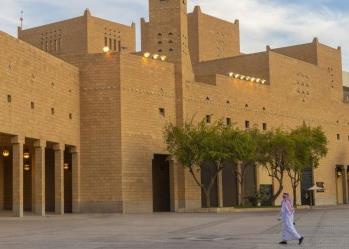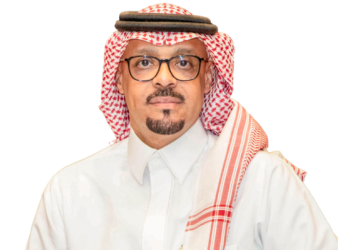
The deputy head of Libya’s interim ruling government discusses the challenges facing the soon to be elected National Congress and plans for the NTC to disband
By his own admission, Mustafa el-Huni, deputy chairman of Libya’s National Transitional Council (NTC), will have a limited role in the country’s political future once parliamentary elections have taken place. But the actions of El-Huni and his colleagues in the coming weeks will be crucial in determining the success of Libya’s democratic transition.
“From day one, we said that we are a transitional council. We will not allow members to stand for election, to remove the idea that we will influence the poll,” says El-Huni.
He is one of 85 officials that comprise the NTC, Libya’s ruling interim government. The NTC has the daunting task ahead of holding free polls to elect a parliament (National Congress) in a country that has no democratic institutions nor a history of political freedom.
NTC dissolution
El-Huni says the NTC will dissolve as planned after the election, but there are fears that some of its members may be reluctant to forgo their newly won influence.
“The NTC will naturally take an advising role, but not as the NTC body. We are not allowed to be in the cabinet or the congress,” he says.
The National Congress is intended to be temporary, representing the second stage in Libya’s post-Gaddafi transition. It will be an interim parliament and will be dissolved after a year. “Their job is to select a new government and a committee to draft a new constitution,” says El-Huni.
The National Congress will be tasked with determining the new political makeup of the country and its draft constitution will be put to a vote in a referendum set to take place in the middle of next year.
“The referendum will be put to the people to identify the state of Libya. We like decentralisation. We do not want a central government to control everything,” says El-Huni. “Most people are inclined [towards a] republic, what type of republic, it’s not clear. For example, it could be a presidential republic without a prime minister like the US or a parliamentary republic or a mix like France. These differences are not very clear in the minds of the people.”
El-Huni is well aware of the magnitude of the challenge ahead, but retains a sense of optimism despite the chaos that has ensued in the seven months since the killing of Muammar Gaddafi.
To manage the electoral process, the NTC set up the Election Authority. One of its primary responsibilities is voter registration and vetting prospective candidates. Unsurprisingly, given the logistical problems of staging a vote in a post-conflict environment, the process has already hit delays.
We are a transitional council. We will not allow members to stand for election
The elections were originally scheduled to be held on 19 June. But the Election Authority decided to extend the registration period for voters to 21 May from 14 May. This has had a knock-on effect on the election date, although a new timetable is still to be set.
Of the 6 million Libyans, 3.4 million are eligible to vote. Election officials said after the deadline that about 80 per cent registered to vote.
Vetting candidates
Together with the National Transparency Committee, the Election Authority’s second mandate is to weed out candidates linked to the previous regime and disqualify them from standing for the vote.
About 4,000 candidates have registered to contest the 200 seats in the National Congress. The question of links to the former regime is a sensitive issue in Libya.
Gaddafi’s 42-year rule was characterised by its brutality and endemic corruption. “We all somehow, somewhere worked for the government in Libya for the past 40 years. We cannot exclude everybody, just those who were part of the system, who helped Gaddafi and those who tortured, killed and the big thieves,” he says.
The problem is we do not have a private sector. It is time to develop it with good laws
El-Huni himself spent much of his career in Tripoli working for the Oil Ministry and state oil major National Oil Corporation. He also served as a financial adviser to the Libyan National Economic Development Board before the collapse of Gaddafi’s regime in October 2011.
Emotions are still raw after the end of the civil war that threatened to tear Libya in two. The NTC, which was founded in the eastern city of Benghazi, has itself come under fire for not being representative of the entire country.
Reining in militias
Drafting a constitution might be one of the easier tasks facing the National Congress; restoring security and addressing the legacy of corruption will be far harder. When it comes to security, the most immediate problem is the militias, which still roam the streets of many cities in Libya. The NTC has also been trying to tackle the issue.
“We still have problems with [the militia] groups, but we are trying to solve this problem by rehabilitation programmes. We have put in a lot of effort,” says El-Huni.
The NTC has set aside LD10bn ($7.8bn) for the next three to four years to support a programme that aims to encourage dissidents to join the police force or the army or encourage them to finish their education.
The Warriors Affairs Committee was established in January to organise the programme to integrate up to 200,000 former fighters from across the country.
“Most of them are very young, under 25 years of age and some of them want to go back to their normal lives, but we have to help them,” says El-Huni.
Although Libya is unlikely to suffer the sectarian conflicts seen in Iraq, the tribal nature of society could threaten the unity of not just a new parliament, but of the country as whole.
Until 1963, Libya used a federal administration of three states; Tripolitania in the west, Fezzan in the southwest and Cyrenaica in the east. In early March, militia commanders and tribal elders in Libya’s eastern region, where protests against the former Gaddafi regime began last year, unilaterally declared a semi-autonomous state.
The new semi-autonomous eastern state, has been rebranded Barqa from Cyrenaica, it previously covered almost half the country’s landmass with Benghazi as its capital.
It will have its own parliament, police force and courts. The leaders insisted at the time that the declaration was purely administrative, and intended to address the region’s marginalisation under Gaddafi’s rule and that it would remain part of a united Libya. Foreign, military and oil policy would continue to be set in Tripoli. But the declaration will make the challenges facing the National Congress much harder.
The NTC is also tackling the issue of corruption. It had two of its members struck off by the National Transparency Committee earlier this year for their links to the old regime. The NTC is now preparing to add at least 300 individuals to Law 36, which was created to freeze the assets of Gaddafi’s associates.
“There is a long-term and a short-term solution to corruption. In the short term, it can be done by applying strict laws. The average salary for a government worker is about $500-600 a month and at the same time he can sign a contract for $10m. It would take an angel to convince him not to take a bite, but I am sure with a better salary, good accommodation, self-respect and good laws, he’ll be hesitant to risk all of this,” says El-Huni.
Improving the security situation and tackling corruption is essential to ensuring much-needed foreign investment starts to flow back into the country.
“The problem is we do not have a private sector as such. It is time to develop it with good laws and joint ventures with foreign companies,” says El-Huni.
“We have a lot of money inside Libya, the national banks have a lot of assets, but we need to change the existing laws to facilitate the private sector.”
The NTC passed Libya’s 2012 budget on 15 May. The LD68bn spending plan is broken into two tranches. The first LD30bn will be used to pay public sector wages and pensions, while the second tranche, worth LD38bn, will go towards development and infrastructure rehabilitation. This includes the energy and healthcare sectors, and the reintegration of Libya’s revolutionary fighters to the civil society.
Approximately LD45bn of the budget will be paid for by crude sales, says El-Huni. The country’s oil sector has made a speedy recovery after the war, when production levels fell to just 400,000 barrels a day (b/d), from around 1.6 million b/d. By the end of June, output is expected to reach pre-war levels.
The remaining LD23bn will come from the unfreezing of Libya’s foreign assets, which total an estimated $165bn. These were frozen by their host countries during the civil war. Between 60 to 70 per cent of this has now been unfrozen and recovered.
The delay in releasing the assets is actually from the Libyan side rather than reluctance on the part of the hosts. The Libyan Investment Authority, which was established by Gaddafi holds $63bn-65bn-worth of foreign assets. To unfreeze these, the NTC must reorganise the board of the authority.
“The new board was appointed last week [mid-May]. Once they start functioning, we don’t see any problems de-freezing the assets,” says El-Huni.
Early stages
Libya is still in the early phases of its transition process. The successful conclusion of elections will mark an important step on the road to democracy. After decades of underinvestment, the country desperately needs foreign expertise and investment. Addressing the issues of security and corruption and the passing of a new constitution will be central to winning investor confidence.
“Everybody says Libya is the future, but we need to receive feedback from the foreign companies. We need to convince them to come and accommodate them by changing the laws and facilitating the logistics. But [foreign companies] need to come to Libya, to walk the streets and talk to the people, and see it for themselves,” he says.
The months ahead will be crucial.
Career history
- 2011 to present Deputy chairman, Libya’s National Transitional Council
- 2007-10 Senior economic and financial adviser, Libyan National Economic Development Board
- 2002-04 Chairman of Petrochemical International Marketing Company
- 1994-2002 Senior economic adviser, international marketing department, National Oil Corporation (NOC)
- 1984-1991 Chairman and managing director, Universal Trading & Consultancy Company, in Madrid
- 1968-1978 Various positions at Libya’s Oil Ministry, including head of pricing and marketing division
You might also like...

Iraq signs deal to develop the Akkas gas field
25 April 2024

Emaar appoints beachfront project contractor
25 April 2024

Acwa Power signs $356m Barka extension
25 April 2024

AD Ports secures Angola port concession agreement
25 April 2024
A MEED Subscription...
Subscribe or upgrade your current MEED.com package to support your strategic planning with the MENA region’s best source of business information. Proceed to our online shop below to find out more about the features in each package.








